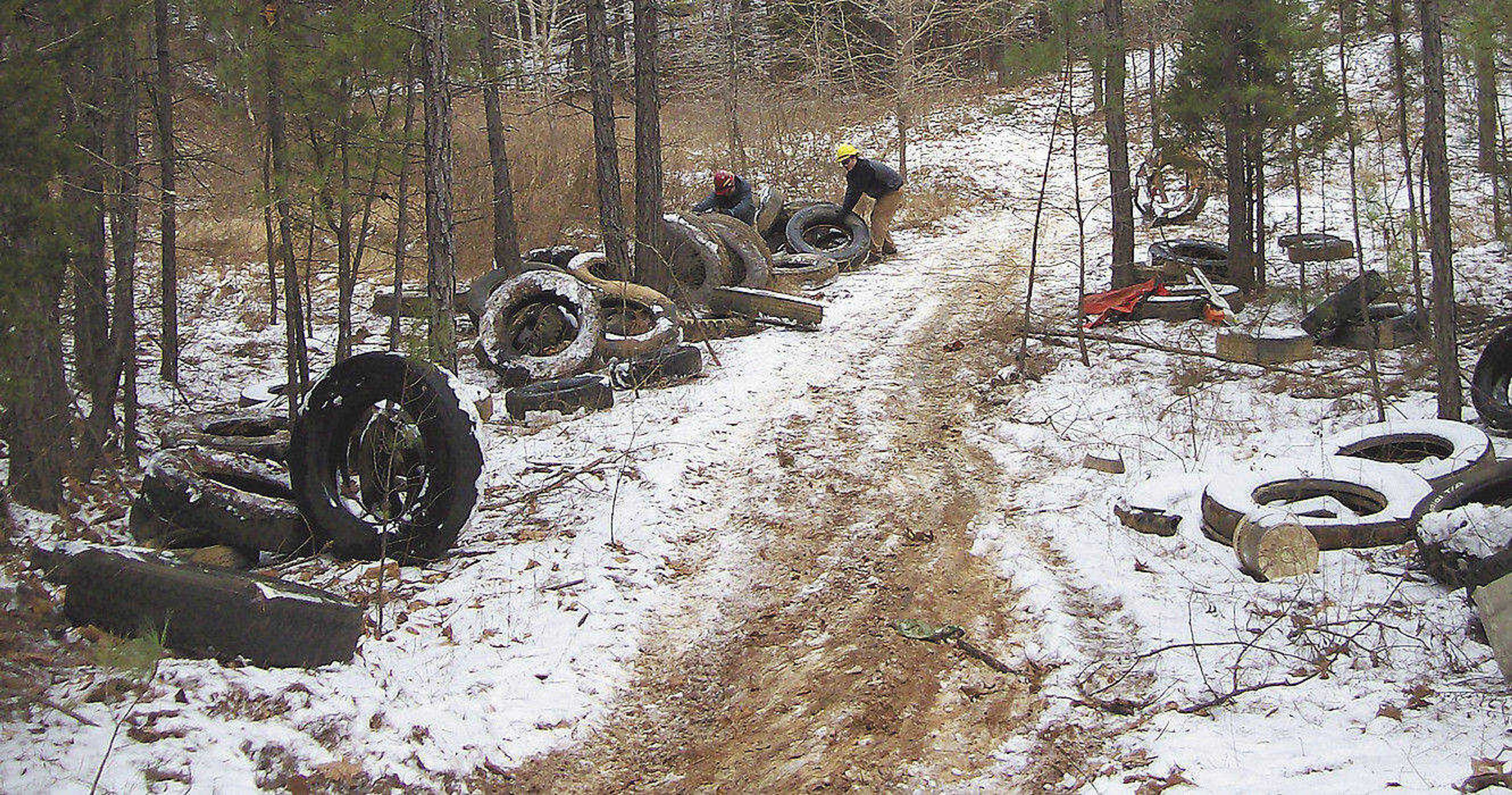Battle against tire dumping in national forest ramps up
POPLAR BLUFF, Mo. -- Officials with the Mark Twain National Forest are continuing their battle against illegal tire dumping on forest lands across Southeast Missouri, the Daily American Republic newspaper reported. "We've made a concerted effort to clean up areas where people have historically dumped tires," said Poplar Bluff District Ranger Doug Oliver, who was surprised at the actual number of tires collected during a recent pick-up blitz dubbed "Operation When Rubber Meets the Road."...
POPLAR BLUFF, Mo. -- Officials with the Mark Twain National Forest are continuing their battle against illegal tire dumping on forest lands across Southeast Missouri, the Daily American Republic newspaper reported.
"We've made a concerted effort to clean up areas where people have historically dumped tires," said Poplar Bluff District Ranger Doug Oliver, who was surprised at the actual number of tires collected during a recent pick-up blitz dubbed "Operation When Rubber Meets the Road."
More than 1,400 tires were collected in the Poplar Bluff and Eleven Point/Doniphan districts during the three-week cleaning campaign, said Angie Trombley, a wildlife biologist at the Doniphan/Eleven Point Ranger District office in Doniphan. Those tires were taken to a collection site near Winona for processing.
An additional collection site was set up west of Doniphan, where 800 more tires were taken, Trombley said.
As a whole, officials collected "more than 2,200 tires on the Doniphan and Poplar Bluff districts combined," said Doniphan District Ranger Tim Bond, who also was surprised by the number of tires.
The problem of tire dumping has "been going on for decades," said Trombley, and Bond believes it may be getting worse.
"We noticed in the last couple of years more and more tires were being dumped," Bond said.
Near Poplar Bluff, the Wolf Creek Road area northwest of the city has become a favorite dumping area, according to Oliver.
"It's a constant battle," Oliver said of the Wolf Creek area. "It's hard to keep clean because of its proximity to town."
Some dumps have just a few tires, Oliver said, while others may have dozens, leading him to believe some are left by individuals and others by small businesses.
"One short road, about a mile and a half long, had 75 tires along it," Oliver said. "Another 25-30 tires were found about 200 to 300 yards down a woods trail from the road."
What Oliver believes would help is a local, permanent collection point, similar to the Poplar Bluff area recycling collection points.
"It's a shame there's not a permanent collection point here close by. If we had those things set up, it would make things easier for people," Oliver said, noting, however, operation of a permanent collection point would cost money that's just not available now.
During the recent collection effort, considerable help came from the Missouri Department of Natural Resources, which operated the temporary collection sites at Winona and Doniphan with funding from the state's 50-cent scrap tire fee collected at retailers.
"When they offered help, we jumped on that," said Trombley.
The Doniphan collection site was actually on private property, which was participating in the DNR's Tire Dump Roundup program. That landowner agreed to take in the forest service's tires.
Without such a collection point available and open, Trombley said, forest officials would not be able to collect tires and store them at their facilities because environmental regulations prohibit such things.
Once a large number of tires were collected, they were picked up for later processing.
"We utilize the Department of Corrections" to pick up the tires from collection sites, said DNR Environmental Specialist Richard Allen. "The prisoners fill up a truck with the tires and then they're taken to a processing plant in Jefferson City."
The tires, Allen said, eventually will become fuel for the University of Missouri's Columbia campus power plant.
"After the tires are processed into small chips, they're shipped to the campus in Columbia and mixed with coal to fire their power plant," Allen said, noting the rubber chips burn very clean in the plant's extremely high temperatures.
Other recycled rubber chips are used around the state on playgrounds and school running track surfaces.
More collection sites in Southeast Missouri are planned for later this summer and early fall, Allen said, and such sites will help forest officials continue their battle against tire dumping because, as Trombley said, "there are still tons more tires out there."
Connect with the Southeast Missourian Newsroom:
For corrections to this story or other insights for the editor, click here. To submit a letter to the editor, click here. To learn about the Southeast Missourian’s AI Policy, click here.









